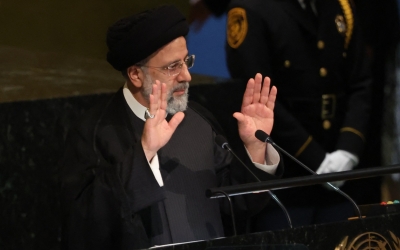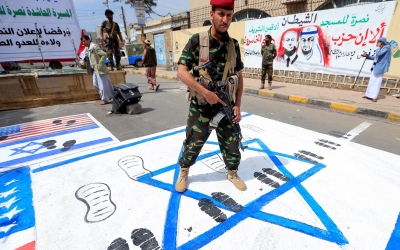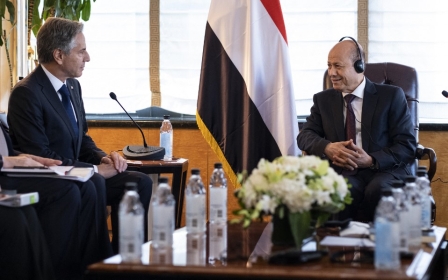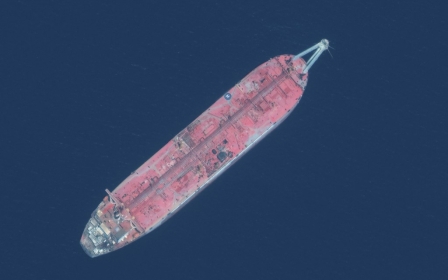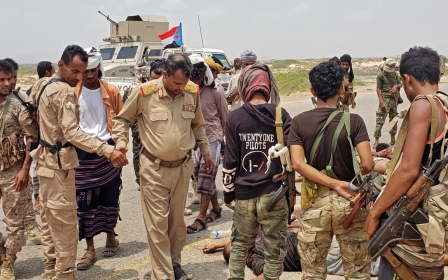US 'encouraging' Saudi Arabia to engage with Iran, says top diplomat
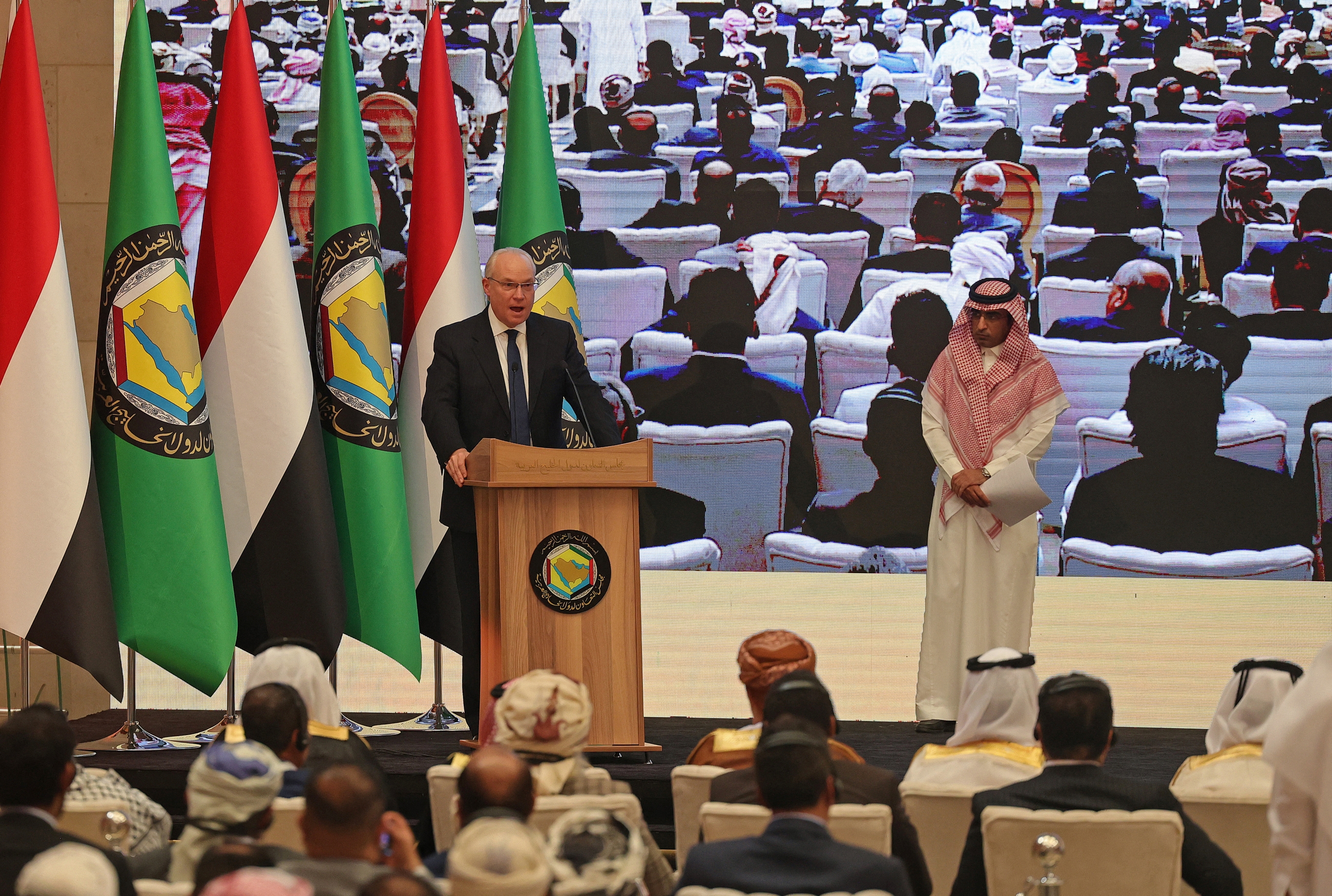
The United States is 'encouraging' Saudi Arabia to keep channels of communication open with Iran, Timothy Lenderking, the US special envoy to Yemen, told Middle East Eye, as the US and UN push to extend a fragile truce in the war-torn country.
Riyadh and Tehran launched direct talks in Iraq last year in a bid to repair relations that had frayed over conflicts such as Yemen, where Saudi Arabia is the main backer of the internationally recognised government, and where Iran has supported the Houthi rebels with arms and training.
"We talk to the Saudis regularly about those conversations," Lenderking told MEE on the sidelines of the United Nations General Assembly in New York City.
'The UAE and Iran have channels and we hope that among the issues discussed in those channels there is the possibility of more constructive engagement from the Iranian side on Yemen'
- Timothy Lenderking, US special envoy for Yemen
"[The] Saudis are very keen to see benefit from Iran for Yemen and for their security from those conversations, so we encourage Saudi Arabia to keep those channels open," he added.
Yemen descended into civil war in 2014 after the Iran-aligned Houthis seized the capital, Sanaa, forcing the internationally recognised government to flee to Saudi Arabia.
Riyadh and a coalition of regional allies, chiefly the UAE, intervened in March 2015 to push the Houthis back. The fighting devolved into a proxy conflict with the Houthis shooting missiles and drones as far as Dubai and the Saudi-led coalition launching thousands of air strikes in Yemen, with many targeting civilian infrastructure.
A truce in the civil war, first announced in April, has brought much-needed respite from fighting, but is set to expire on 2 October. The deadline comes at an uncertain time for the region, with talks aimed at reviving the 2015 Iran nuclear deal largely stalled.
Iran tensions
Tensions between the US and Iran have been on the rise. In August, the US destroyed ammunition and logistics bunkers in northeast Syria it claimed were used by groups affiliated with Iran's Islamic Revolutionary Guard Corps. Washington said the move was in response to attacks in Syria by Iran-backed militias.
Speaking to reporters on Wednesday, Lenderking said talks on Yemen and the nuclear deal were occurring on "separate tracks". He also indicated a gap between Iran's rhetoric and its actions in Yemen.
"We would like to see their [Iran's] nice words met with actual implementation," he told reporters. "That is to support a political process, to move away from arming, training the Houthis."
Middle East Eye reached out to Iran's UN mission but didn’t receive a reply by time of publication.
As in Vienna, where the US has had to negotiate on the nuclear deal via European powers, Washington has relied on regional partners to communicate with Tehran as it looks to extend the truce.
"We do not have any dialogue directly with Iranians on any issue, and so we don't have any direct contact with them on Yemen," Lenderking said. "But many countries do, and we talk to those many countries and we pass messages to those many countries as well."
While some regional states, such as Israel, have lauded the near-collapse of nuclear talks, others appear to be hedging their bets and have moved to re-engage with Tehran. This summer, the UAE and Kuwait reappointed their ambassadors to the Islamic Republic.
The UAE supports Yemeni militias that have been crucial in pushing back Houthi advances in the key provinces of Marib and Shabwa. Earlier this year, the Emirates were targeted by a string of long-range drone attacks claimed by the Houthis.
Lenderking told MEE that the US welcomed Emirati and Iranian talks on Yemen.
"The UAE and Iran have channels and we hope that among the issues discussed in those channels there is the possibility of more constructive engagement from the Iranian side on Yemen," he said.
Envoy slams 'escalatory' military parade
Diplomats are preparing for the final push to extend the Yemen truce. This week in New York, the chairman of Yemen's presidential leadership council met with US Secretary of State Anthony Blinken and Jordan's King Abdullah II.
Lenderking said there was strong support in the region for an extension to the truce.
"What we are hearing are verbal commitments to upholding the truce and affirmations of the political process," he said.
"Any party that would choose to take up arms at this point when the benefits of the truce have been revealed is significantly out of step not only with the international community, but with the Yemeni people."
There have been flare-ups in fighting. Last month, Yemen's internationally recognised government accused the Houthis of conducting an attack on the besieged city of Taiz in which 10 people were killed. The Houthis' refusal to lift their blockade of the city has been a key obstacle to truce negotiations.
The UN Security Council also condemned a Houthi military parade in the key port city of Hodeidah in September. Lenderking told MEE the military display was "escalatory".
"Military parades like we have seen in Yemen, hosted by the Houthis, are definitely not consistent with the truce," he added.
Yet, the truce has been relatively succesful, bringing a much needed respite from fighting that, according to the United Nations, was likely to have claimed the lives of 377,000 people by the end of 2021.
According to the United Nations, more than two-thirds of Yemen's 30 million people rely on humanitarian aid to survive. The truce led to a 60 percent drop in civilian casualties, with most now occurring as a result of landmines and unexploded ordnance, the UN has said.
The number of displaced people has been reduced by half. International flights have resumed in a limited capacity from Sanaa and fuel shipments to the Houthi-controlled port of Hodeidah have increased.
Middle East Eye propose une couverture et une analyse indépendantes et incomparables du Moyen-Orient, de l’Afrique du Nord et d’autres régions du monde. Pour en savoir plus sur la reprise de ce contenu et les frais qui s’appliquent, veuillez remplir ce formulaire [en anglais]. Pour en savoir plus sur MEE, cliquez ici [en anglais].


